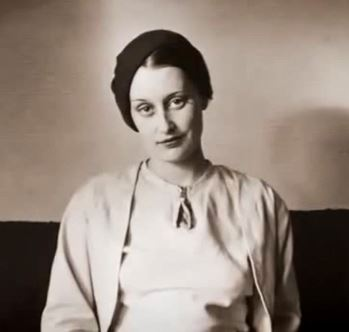For guys in my dad’s generation, for those who were also from here, there wasn’t much more impressive than an airplane. Some, like his cousin Ben, went for sailboats instead. Sailing has the advantage that you don’t fall to your death if the wind goes out of your sails, but you may end up shark food, so it’s a trade-off.
Part of this phenomenon might have been driven by wanting to impress people that there was something more to them than just another country boy, and a machine that can actually fly is a pretty good way to do just that. In some cases, it was a thing that their parents had only read about. It’s hard to imagine what that would be like today. I guess my father never dreamed of such a thing as a submersible that went to the Titanic, so if I got one, it’d be impressive to him, although apparently ill-advised.
Bob Neblett was the first weatherman in Mississippi on the first television station in Mississippi. He was a weatherman because he was also one of Mississippi’s first private pilots. Besides doing the news, he was in charge of Mississippi’s only airport, Hawkin’s Field, out by the zoo. Today, pilots check their phones for weather reports before going out. Neblett didn’t have that available to him, and NOAH didn’t send out weather reports on the wire, so he learned basic meteorology himself. When WJTV went on the air, Bob was the only choice. He also sold ice cream and introduced Mississippians to Reddy Kilowatt.
Serving in the ROTC, my dad wanted very much to be a pilot. He was in ROTC, so when he went into the service, he would be an officer. His father insisted. He was completely ready to fight the Nazis in World War II, but it ended before he graduated, so he served in Korea. The airforce said he was too tall for a pilot, but he could be an engineer, so they sent him to school to learn this fancy new thing they had called “radar,” and he spent his entire military career listening for Russians flying over the border into West Berlin, and learning the specs of every aircraft on the base.
Most of Dad’s friends were as plane obsessed as he was. When Brum Day ascended at Trustmark, Trustmark got an airplane. My uncle Boyd loved trains. He was part owner of a railroad in North Mississippi for a while, and Missco had a sleeper car they could attach to the City of New Orleans for trips to Chicago and beyond. When my dad took over, the sleeper car was replaced by a Beechcraft King turboprop airplane. The first of three, each one a seat or two bigger than the last. His last aircraft had previously belonged to Roy Clark, the singer, who traded it for a jet.
There are scary moments with airplanes. The Missco plane was hit by lightning twice and by geese several times. Ben Puckett, one of his best friends, was flying out of Hilton Head when they crashed and killed six passengers, including Roger Stribling. Ben had a broken back, and it took him months to recover. One of Roger’s daughters was in my class. The idea that this could have been my family was very clear to me.
Not rated to fly a craft the size of a Beechcraft King, my dad had to hire a pilot. A retired WWII pilot named Tony Staples came highly recommended. Tony was a square-shouldered, steel-eyed gent with shocking white hair.
Tony was the most fastidious guy I ever knew. He was so good at taking care of airplanes that each of our airplanes sold for more than what we paid for them. While his voice had great power, he used a very controlled tone. This is a trait often found among pilots whose lives depend on radio communications.
Tony, very conspicuously, wore a gold Mason’s ring. From what I understand, he never missed a meeting. He talked to me about it a few times but never pressured me to join. I was interested because there were several Freemasons in my family, but never joined.
One of my favorite stories about Tony is that once, we were stopped at a small airport for fuel, and inside the fuel center were four young men wearing denim and t-shirts but with their faces painted in elaborate designs. We assumed they were clowns and avoided them. Tony never met a stranger and struck up a conversation with the boys and came back reporting that they were a band, and their gimmick was that they never appeared without their makeup. He even bought one of their albums. Showing me the album, I could see the artwork of the same four boys in makeup and the words “KISS” on top. I always heard they did pretty well after that meeting.
When my dad died, the man who took over his position hated flying, so it was clear the days of our airplane were numbered. They were having a pretty terrible year and hoped this infusion of cash would improve the bottom line. Tony had retired, but the new pilot passed me in the hall. “They’re selling your daddy’s airplane.” He said. The comment was more potent coming from him because it meant he was out of a job. “Things are changing,” I said. Things are really changing.



